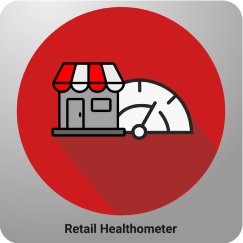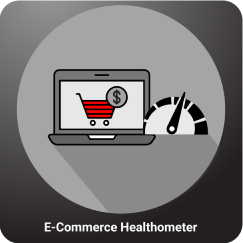Traditionally, there are two ways of selling a product – retail and wholesale. In retail, goods are sold in fragmented quantities; while in wholesale, it is done in lots. But whatever be the method of selling, a businessman or an entrepreneur need to organize it as a business comprising of several functions and processes which have to be planned in advance and directed towards achieving the key objective – provide retail service to sell goods/services and add value to the business.
Service industry has become extremely competitive. Building a retail service entity requires the establishment of a solid, strong and service-oriented business organization. And the first step in this direction is designing the blueprint of the future business. This blueprint is nothing but the detailed action plan to be followed in the execution of various functions and operations during the building up and the conduct of business. This blueprint shall include the broad components of a retail business which are meant to work cohesively and productively.
Marketing
Marketing starts with the idea or the concept of the proposed business. At the very early stages, marketing addresses several basic questions like
1. What will be the core service?
2. What product line that will be offered for sale?
3. Who are the potential customers and where are they located? (Market segmentation, customer demographics)
4. What is the existing and expected level of competition?
5. Is the business idea – feasible, sustainable or workable? (Marketability, operability, profitability, growth potential)
At later stages, marketing management involves detailed planning for the services to be offered, pricing strategies for retail services and goods, channels of distribution to be adopted, means of promotion and merchandising.
Business Model
A retail business can go ahead with establishing its own store(s) or adopt a franchise model. This decision is dependent of several considerations like
1. Availability and access to adequate capital.
2. Retail business and management skills, knowledge and expertise.
3. Strategic advantages of partnering with established franchisee players (risk optimization, use of already existing supply chain, channels of distribution, trained and experienced staff etc).
4. Authority and control sought (in the operations and management of the stores).
5. Profit/revenue sharing.
6. Capturing new markets.
7. Business expansion with resource constraints like time, monetary etc.
8. Business expansion but unwilling to put additional burden on existing facilities.
9. Mechanism for franchise reporting, audit and control.
There are several proven business models a retail business enterprise can opt to operate with depending upon their needs and specifications. Some of the popular models are –
1. COCO (Company Owned, Company Operated)
2. FOCO (Franchise Owned, Company Operated)
3. COFO (Company Owned, Franchise Operated)
4. FOFO (Franchise Owned, Franchise Operated)
Regulatory
All businesses operate within a regulatory framework which lays down the criteria, rules and regulations to be followed and adhered to. A retail business enterprise needs to obtain several permissions, licenses and certificates from the concerned authorities to establish and carry out retail business activities.
Technology
Technology is taking the retail industry by a storm. There are new technologies, affecting the retail business, evolving at an unprecedented frequency. But it is not about blindly grabbing technologies. Retail business enterprises need to identify their own operational requirements first and then take a decision on procurement of the required technology.
1.Is there a need for technology?
Certain technologies and automations have become a part and parcel of everyday functioning of most retail enterprises. These include use of POS machines, bar code scanners, printers, monitors, CCTVs etc. Recent times have seen an increased use of QR code technology, cloud based operability and management, mobile and app based platforms, mobile wallets and unified payment solutions and so on. The latest development includes a unified and integrated QR code technology.
A retail enterprise may require technology for, apart from the basic services and automation, several advanced purposes like data management, retail analytics, ERP, CRM, merchandising, supply chain and inventory management and so on.
2.Awareness, popularity, access and usage of technology by customers.
No matter how efficient or effective a technology is, but if it is not used by or accessible to the customers it becomes irrelevant in that particular context.
3.Financial implications.
Firstly, technology comes at a cost, funding for which, ideally, have to be provided for in the budget. Secondly, the revenue generation of the store should be able to justify the cost of technology it makes use of.
Finance
Most of the small retail businesses start off with the personal funding of its owners from sources like savings, informal loans and credit from family and friends and so on. It is also difficult to find investors and bank loans at the early stages of business formation. Going by the accounting concepts and principles, capital is treated as liability for business. And a business must be able to generate a healthy return on investment to meet the cost of the capital (even if the capital is provided by the owner; the business and its owner are two different entities). The same is also true if the capital is sourced from the outside. Some of the key considerations in financial management are
1. Determination of the amount of capital required.
2. Cost of capital from different sources.
3. Revenue generation or cash flow forecasts (to meet both capital and revenue expenditure)
4. Return on investment.
5. Break-even analysis.
6. Other critical financial ratios.
The retail sector is growing phenomenally making it an attractive business destination. While at the same time, forming and successfully running a retail business in today’s competitive space is not easy especially with the dominance of the big retail players who are fast reaching out to every town and city.
To know more about “How to start Retail Business in India” get in touch with our Retail Experts on [email protected]
Get Advice for Start a Retail Business
Author Bio

Rupal Agarwal
Chief Strategy Officer










